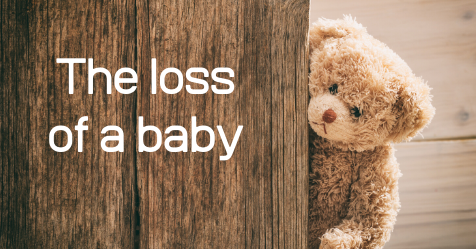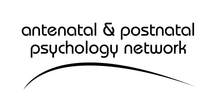|
Miscarriage is commonly dismissed as the 'loss of a pregnancy'. For happily expectant parents, miscarriage is the loss of their baby. It represents a loss of parents' hopes, dreams, and future plans. For many people, the idea of parenthood is conceived some time in their early lives. Although the timing of these inklings differ for different people, there are unconscious stories people amass as they themselves were parented, and as their developing selves evolve over time. A kind of knowing that one day, they too will become parents. For some people, an opportunity to rectify or better the less-than-ideal parenting they received.
Often the work lives and the intimate relationships of hopeful parents have come to a point where there is an existential readiness for children. A baby becomes nurtured in their minds. The woman's body is primed to create and protect a precious new life. Once pregnant, a woman (and couple) typically begin to imagine their new lives. Anchored by the due date of their baby and alongside the lifestyle sacrifices made for optimal gestation, they begin to integrate their baby into their decision-making, into their future plans, into their homes, and into their families. Once announced, the broader family narrative may begin to incorporate the baby. When a pregnancy ends in miscarriage, the physical and emotional ramifications can be devastating. The baby conceived of in body and mind, has died. The process of miscarrying can be painful, protracted and traumatic. The woman may have felt or seen her tiny baby, and she may regret where her baby ended up. Most people are unaware of what a woman might have experienced in the midst of miscarrying, and may have no idea about the depths of her grief over the loss of her child. When miscarriage happens repeatedly, hopes are raised and dashed time and time again. The accumulation of loss and grief can be crippling, with plummeting self-worth, and for some women, increased self-blame, hopelessness and depression. Women often remark that they observe other women seemingly 'popping out' babies with little effort. Pregnancy and babies everywhere. There is no escape from the enthusiastic pregnancy and birth announcements. And even worse, the unplanned, 'surprise' pregnancies that can engender a silent rage in the bereaved parent, who is acutely aware of the inequities of parenthood. How easy it seems for others. How alone the woman feels. So desperately wanting to settle into the next phase of life. Wanting what everyone else seems to have. Feeling guilty for her envy. Avoiding her usual supporters, for fear of her inability to conceal her grief. Questioning what she is doing wrong, and why this is happening to her. The staggering truth is that at least one in four pregnancies end in miscarriage. The sad reality is that many women don't talk about it. The secrecy surrounding miscarriage is in part due to the convergence of women's perceived shame (as if in some way it is their fault), and society's minimisation of the loss not being as valid as the loss of a living child. As a result, isolation can accompany the pits of grief, maintaining the illusion that other women and couples - seemingly unaffected by loss - conceive easily, and give birth to healthy babies. This misguided belief ultimately reinforces the perceived shame, and renders the bereaved parent alone in their mourning, believing that no one really understands what they are going through. Interestingly, when women open up about miscarriage, they are often surprised, and comforted by the number of other women who have also experienced loss. Women can find some solace in online support groups, but the supportive nature of these groups is time limited, as people's situations change. Miscarriage brings emotional implications for subsequent pregnancies. Although relieved to be pregnant, the woman no longer feels the unbridled joy she may have once felt. Instead, there can be questions, doubts, fears and anxieties. Thoughts and feelings that need to be managed, milestones that need to be passed, uncertainty that needs to be endured, and hopes and dreams that need to be quelled. This is the devastation of miscarriage. If you are reading this because you have experienced miscarriage, we are so sorry for your loss. If you are interesting in supporting research into miscarriage, find out more here. Written by Dr Renée Miller Principal Perinatal Clinical Psychologist Perinatal Loss Educator Co-founder The Perinatal Loss Centre, Melbourne, Australia Founder Antenatal & Postnatal Psychology Network, Melbourne, Australia We recognise the importance of good research to inform the ways in which we, and other health professionals support bereaved parents.
The loss of a much wanted baby is devastating, whether through miscarriage, stillbirth, newborn death, or infertility. If you are reading this because you've experienced a loss, we are so sorry. Some people who have experienced loss, find it meaningful to share their experience by supporting research that ultimately helps others who sadly go through similar losses. If you would like to share your experience to further inform research into perinatal loss, your experience will be greatly appreciated and valued by health professionals who care for bereaved parents. As a result of your participation, services will be improved to optimally support bereaved parents. The Antenatal & Postnatal Psychology Network is currently supporting two research studies investigating people's experience of perinatal loss. Please read the criteria below to determine if you are eligible to participate in these studies. Research study at the University of Melbourne on miscarriage This study is seeking women, partners and family members affected by miscarriage more than 3 months ago but within the last 2 years in order to understand how to best support those affected by miscarriage. This research follows several studies on women’s and men’s experiences of miscarriage by the Melbourne University research team, with the ultimate goal of ending the silence around miscarriage. You can talk confidentially with researchers in an interview in person or by phone, or take part in a small group discussion. For more information or to express interest, please contact [email protected] Research study at the University of Adelaide on surrogate loss in the LGBTQIA+ community Participants in this study must identify as LGBTQIA+, and have experienced pregnancy loss more than 6 months and less than 10 years ago. This includes many types of pregnancy loss such as miscarriage, stillbirth, the loss of a pregnancy being carried by your surrogate, and medically-indicated termination of pregnancy. The University of Adelaide researchers are interested in speaking with the person who carried a pregnancy and/or partners of the person who carried a pregnancy, and/or people who have sought to become parents through the use of a surrogate. The findings will be shared with service providers and support organisations to aid in understanding the needs of individuals who identify as LGBTQIA+ who experience pregnancy loss so supports can be more appropriately targeted in the future. For more information about this study, or to volunteer to participate, please contact Alice Rose from the School of Psychology at [email protected] Research study at the University of Adelaide on secondary infertility Researchers are seeking women and/or their partners to take part in a research study on experiences of secondary infertility. This study is investigating the emotional experience, support and coping strategies associated with secondary infertility. Eligible participants are women and/or their partners who have unsuccessfully tried to conceive for at least 12 months after having had a previous successful pregnancy/pregnancies. For more information about this study, or to volunteer, please contact: Ms Georgina Draxler School of Psychology at Email: [email protected] For support following loss, please click here. For community support, please click here. Researchers interested in listing their studies on the Antenatal & Postnatal Psychology Network research portal, please click here. Thank you for your generosity in sharing your experience. Dr Renée Miller Principal Clinical Psychologist Antenatal & Postnatal Psychology Network The Perinatal Loss Centre Mothers’ Day can be tinged with sadness and pain. For women desperately wanting to be mothers. The agonizing torment associated with assisted reproduction and infertility. Hopelessness. Self-blame. Isolation. Fear about an unfulfilled future. Mothers’ Day can accentuate this despair.
For women who have experienced miscarriage, stillbirth, or the later loss of a child. Mothers’ Day can be torturous. And for women, who have lost their mothers (or other loved ones), a myriad of mixed emotions may be present whilst experiencing a ‘celebration’ of their own motherhood. Whatever your pain on Mothers’ Day, wishing you the self-love and compassion to nurture yourself, and to allow yourself to be cared for. With the warmest of thoughts Dr Renée Miller Principal Clinical Psychologist
I wish for you a day of being able – even if just for a moment – to acknowledge the nurturer, or ‘mother’ within you. Acknowledging who in your life you nurture. Friend? Pet? Partner? Someone in your family? Work colleague or staff member? A child who is special to you?
Most of all, I wish you the self-love and compassion to nurture yourself, and to allow yourself to be nurtured. With the warmest of thoughts Dr Renée Miller Principal Clinical Psychologist |
AuthorPosted by Dr Renée Miller Topics
All
|
|
We acknowledge and pay respects to the Elders and Traditional Owners of the land on which our psychologists practise.







 RSS Feed
RSS Feed

